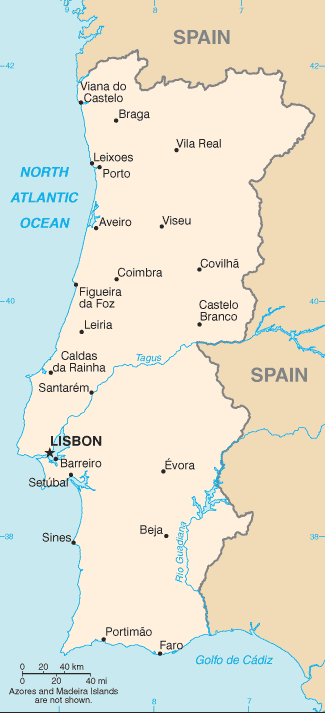This piece of content is not translated in
Português. View the original content in
inglês here.
Drug policy
- The National Strategy for the Fight Against Drugs, which was launched in 1999, defines the general objectives in the field of substance use.
- The National Plan for the Reduction of Addictive Behaviours and Dependences (2013-20) builds on the 1999 strategy.
- It takes a broad and integrated view of drug and addiction problems, including illicit drug use, new psychoactive substances (NPS), alcohol, prescription medications, doping and gambling.
- The Law 30/2000, which has been in place since July 2001, decriminalised illicit drug use and related acts. However, a person caught using or possessing a small quantity of drugs for personal use - where there is no suspicion of involvement in drug trafficking - will be evaluated by a local Commission for the Dissuasion of Drug Addiction. Punitive sanctions may be applied, though the main objective is to explore the need for treatment and to promote healthy recovery.
Treatment and Recovery Services
- The National Plan stipulates that treatment interventions should be based on a comprehensive diagnosis of each citizen’s full biopsychosocial needs. It should also be accessible and adaptable, as well as based on scientific evidence and guidelines.
- Public treatment services are accessible free of charge to all drug users.
- The treatment network entails three levels of care: (i) primary healthcare services; (ii) specialised care, mainly in outpatient settings; and (iii) differentiated care, mainly in inpatient settings (detoxification units, therapeutic communities, day centres and/ or specialised mental or somatic healthcare).
- All centres provide psychosocial care, as well as opioid substitution treatment (OST).
- Early intervention and counselling usually take place in general healthcare centres.
- Mental health services provide care to drug users with mental comorbidities.
- Therapeutic communities are mostly privately owned and publicly funded.
- Treatment of opioid use is a key focus of the drug treatment system. There is also programmes for cannabis and cocaine use.
- OST is widely available through public services.
- Methadone has been available since 1977 and buprenorphine since 1999.
- Methadone maintenance treatment (MMT) is free. Buprenorphine-based medications are available in pharmacies and National Health System covers 40 % of the market price of the medication.
Prevention Services
- The Portuguese National Plan for the Reduction of Addictive Behaviours and Dependencies 2013-20 recognises the importance of age-specific prevention in difference contexts, including family, school, recreational and sports settings, community, workplaces, road safety and prisons.
- Prevention interventions encompass a wide range of complementary approaches.
- Environmental prevention initiatives include regulating the alcohol and tobacco sales to and their consumption by minors.
- Universal drug prevention is part of the school curriculum.
- Recent school-based programmes include general ones that promote an overall perspective on healthy living, as well as specialised initiatives that focus on specific aspects of addictive behaviours and dependences.
- Recently, a number of major media campaigns have been implemented. These complement other awareness-raising and information initiatives that mainly target young people.
- Notably in the recreational context, at present there is a growing interest in the application of new technologies that can support preventative interventions and health promotion.
Recent Knowledge Share content about Portugal
